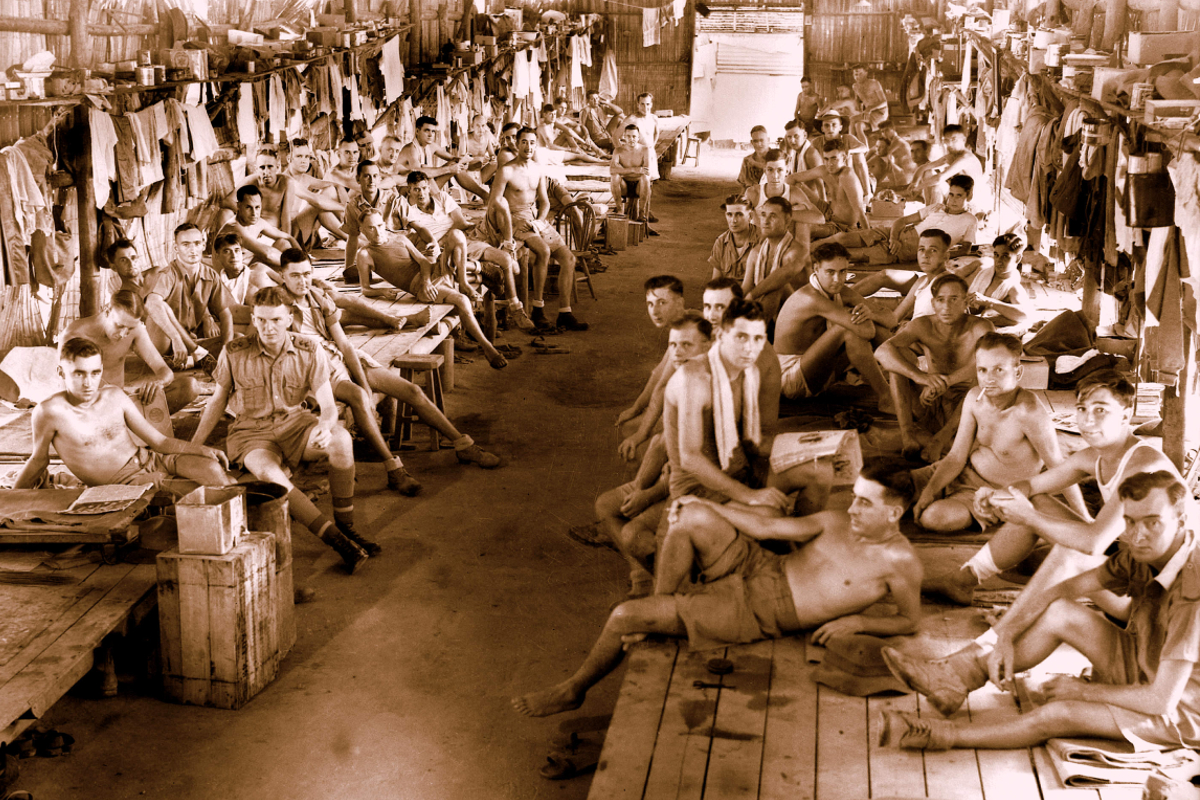As we all found out during the pandemic, freedom is vital to our sense of self and well-being. When humans are imprisoned, that lack of freedom and agency creates a terrible sense of impotency. Over time, cut off from love and family, one’s identity begins to collapse in on itself. Prisoners in WW2 had to rapidly adapt to cope with these psychological challenges, as well as the constant risks of starvation, disease and exhaustion from being overworked as slave labourers.

Personnel of C Company, 2/29th Battalion, in their hut at the rear of Changi Gaol, 1945. Photo © Australian War Memorial
On arriving in their prisons, the first thing most prisoners of war and internees did was to begin to create their own culture, because culture reinforced their humanity, despite their deeply inhuman surroundings.
Profound musical masterworks, such as Olivier Messiaen’s Quartet for the End of Time, and Erwin Schulhoff’s Symphony No 8 were all written in prison, and will be featured in the concert’s first half.
Lighter entertainment was also in great demand. Artists and musicians created and performed shows for their fellow inmates giving everyone a chance to laugh, sing and...











Comments
Log in to join the conversation.